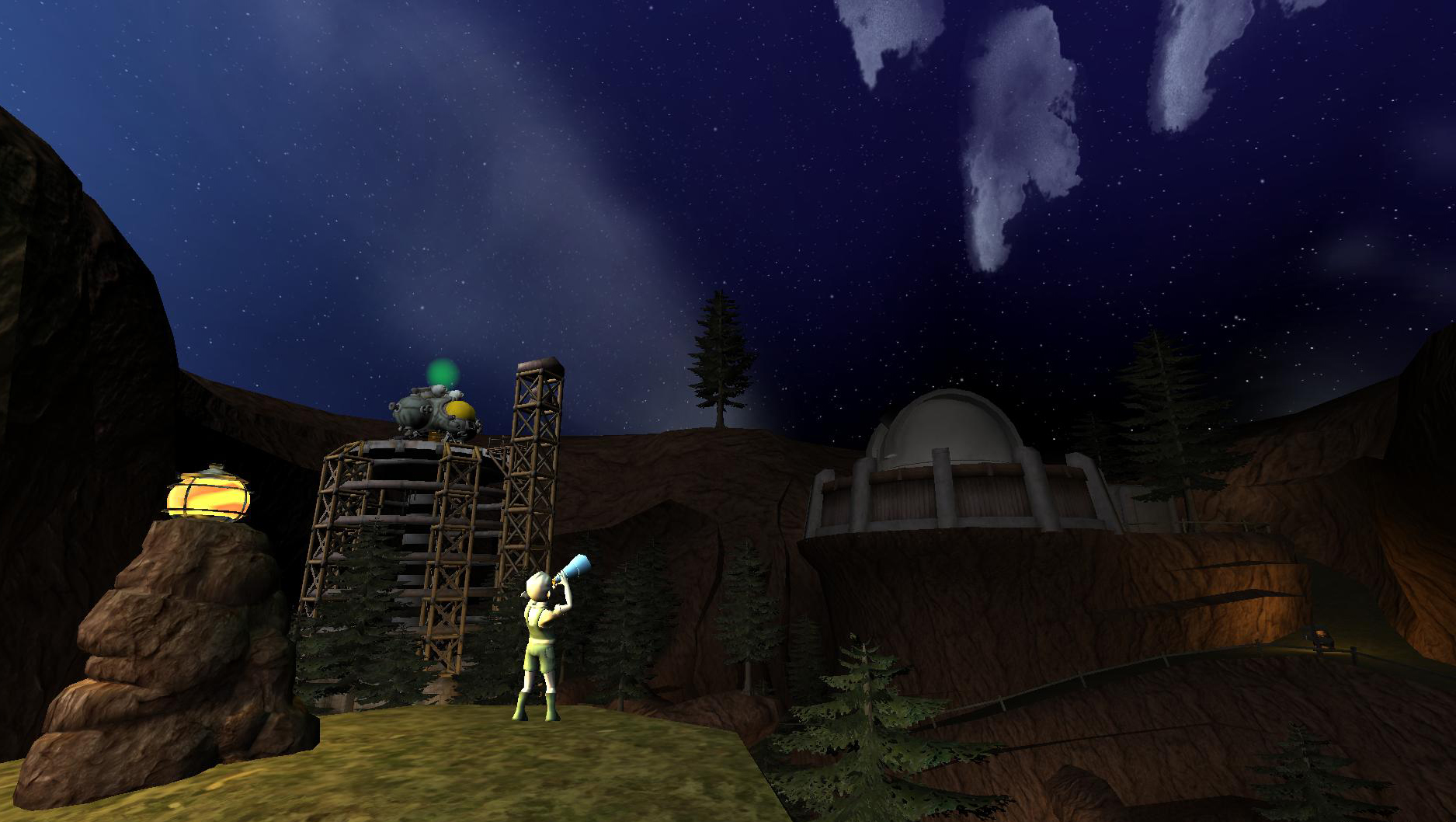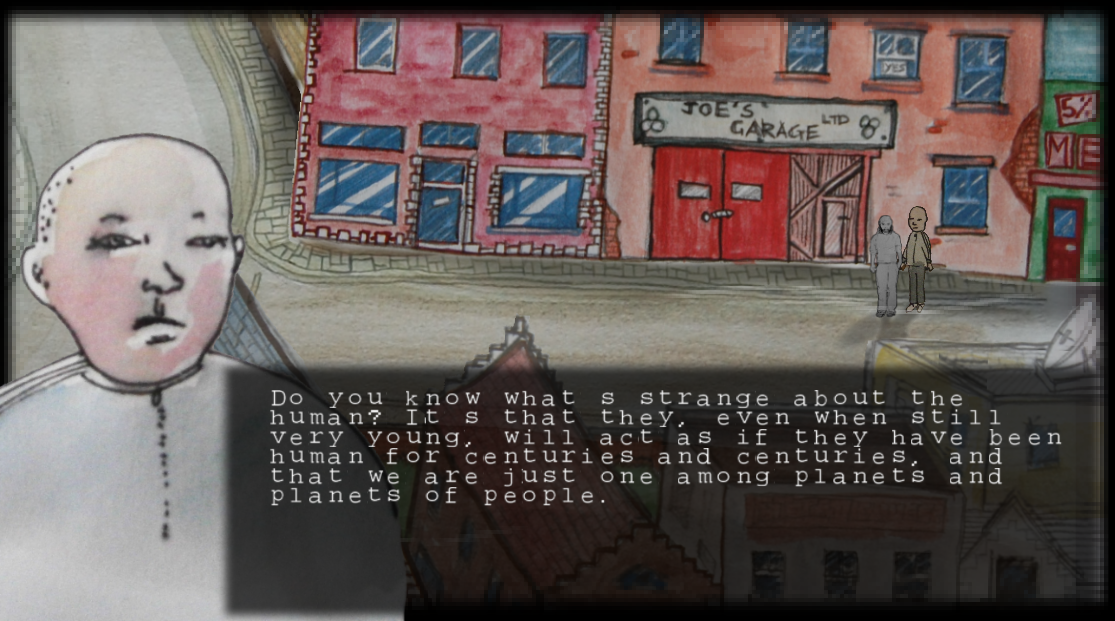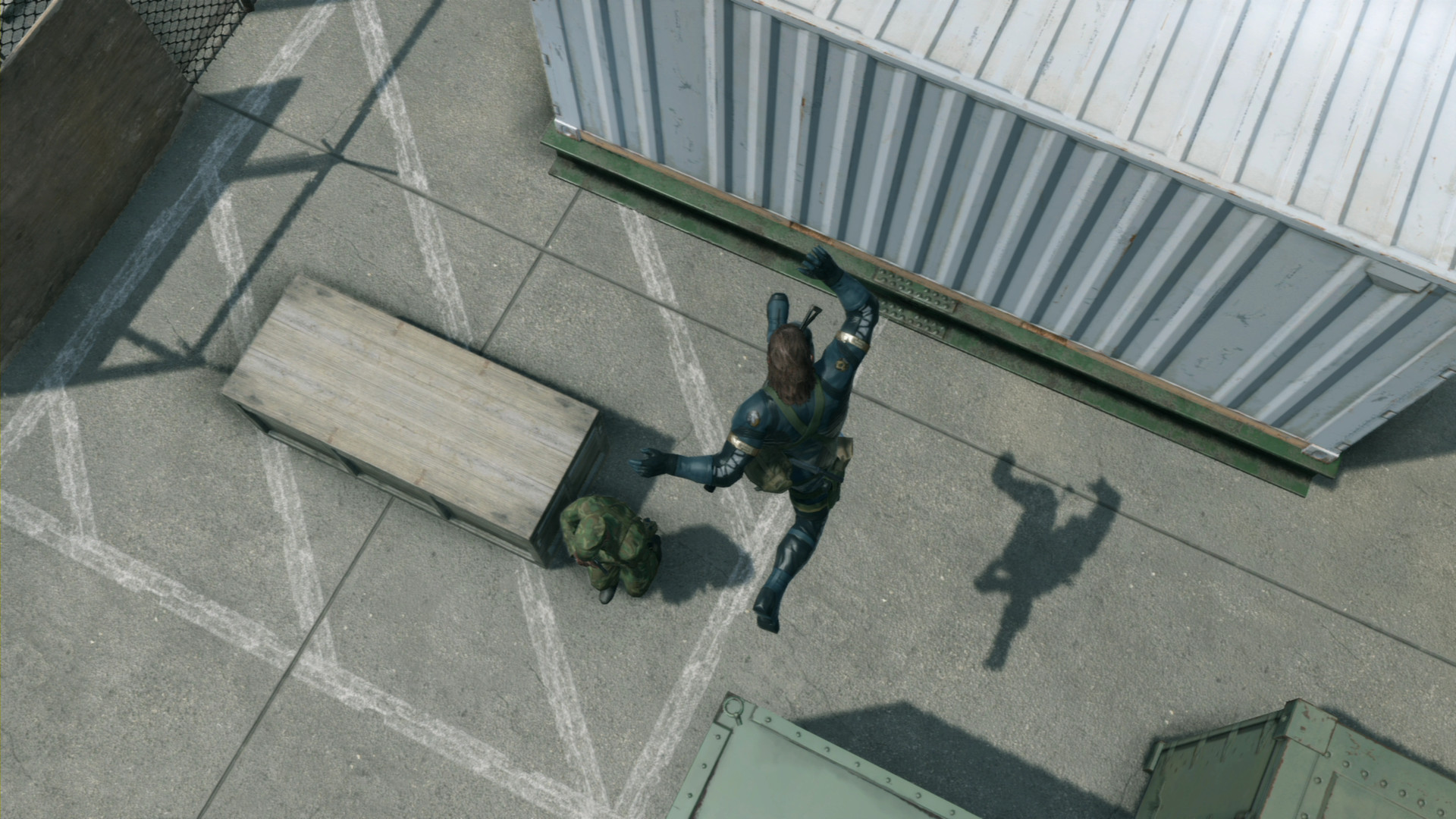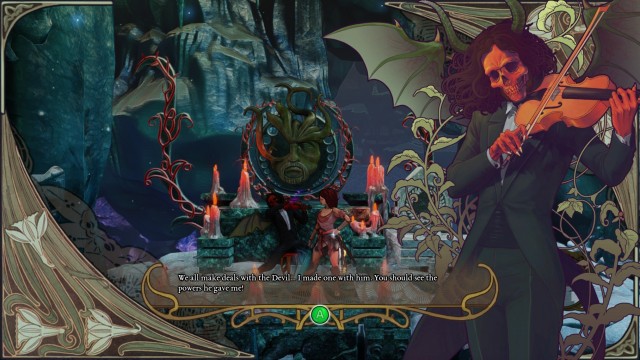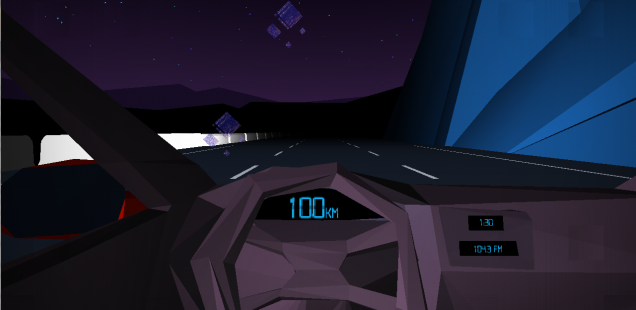
Games of 2014 (4/15)
2014 in review with Glitchhikers, Outer Wilds, Beeswing, Metal Gear Solid V: Ground Zeroes, and Abyss Odyssey.
Glitchhikers
In the summer of 2014 my life was in a weird spot. I recently graduated from university, but I wasn’t quite ready to face the dreadful fact that I had to get a life of my own now.
Instead of spending my time thinking about career options as a fully trained physical anthropologist, I spent most of the summer hanging around outside with a notebook, thinking about the wondrous fact that we have the ability to be aware of the world around us and how ridiculous the universe itself is. It was a time where I let my mind wander off into strange and faraway places. I went on what I’d now call a mental vacation. It came to an abrupt end in August, when I realized that I had no job, no idea what I wanted to do with my life and that my savings were about to run out. Reality came crashing down and hasn’t really left me since.
Back in July, I checked out Glitchhikers mostly because you drive a car at night in it. I don’t have a driver’s license myself, but I always enjoyed night drives when I was a kid. During your session, you pick up three different hitchhikers. The first one is always the same, the other two are randomized, and each tells you stories about their life, or asks you existential questions. These segments are interspersed with the strangely existentialist comments of a radio announcer. The game puts you in a situation where it’s acceptable to have strange ideas about reality, to wonder about the actual value of our existence within the universe. It gives you 20 minutes to be alone with your own thoughts and does not judge you on whether or not they’re are mundane or deep.
Today I use Glitchhikers to cope with the constant dread of failing at life. For 20 minutes it gives me the opportunity to go on of those short mental vacations. For 20 minutes it lets me go off to strange places and even stranger ideas, and allows me to forget that modern society for some strange reason has no need for physical anthropologists.
Eric Merz thinks it’s a good idea to mix his interests in evolutionary anthropology with videogames. You can visit his blog, to see how well this is going. He also talks about videogames on his (German) YouTube channel and has a Twitter account.
Outer Wilds
In a small solar system far, far away, an intelligent species launches its first successful manned space flight. We are fragile, but curious. We know the potential dangers of crashing, exploding, falling into black holes or being eaten by giant space-fish, but still, we explore, hoping to discover the unknown.
Many games have claimed to be about ‘exploration’ lately, but few come close to the soft-spoken, clockwork genius that is Outer Wilds. Every moment of this little universe is carefully choreographed, with complexity revealing itself naturally at the player’s pace. Don’t let the art put you off – this is a beautiful experience, best savored at length, with the patience for meditation and tolerance for sudden panic. Paradigm-shifting eureka moments are rewarded neither by achievements nor praise, but rather with the promise of more to explore and more to understand.
The first action you’re likely to discover is roasting marshmallows. Go ahead and roast some. The movement of these heavenly bodies will not wait for you, but you need not obey their schedules either. Be bold, or patient, or graceful, or forceful, and in time, this little solar system will reward you for who you are.
Tanya X. Short is the game designer and Captain of Kitfox Games.
Beeswing
Videogames rarely acknowledge their artificiality outside of satirical or lighthearted intentions (see DLC Quest and Paper Mario). From rough animation to dead guitar notes that you can almost feel being plucked, Beeswing’s imperfections reflect the complications of memory and adulthood, specifically when one goes back home.
Developer Jack King-Spooner’s previous best work, Will You Ever Return? 2 and Sluggish Morss: A Delicate Time in History, may be underrated, but it also doesn’t possess the universality of Beeswing. Even though King-Spooner is the protagonist, other characters receive the spotlight: an immigrant who shares and appraises the struggles of his life, old friends expressing paranoia and grief through numbers, and, most notably, a woman in a nursing home whose only visitors come from television. As Jack’s mom suggests, the quest of a good person is talking to people face to face, with no immediate benefits, as a neighbor.
In one respect, King-Spooner juxtaposes the rural ideal with urban sickness, as the most joyful parts of the game take place in the Scottish countryside, but Beeswing also confirms tragedy and fear in country life. The music, easily the game soundtrack of the year, emphasizes this duality of wonder and brokenness. With its clash of nostalgia and modern discontent, Beeswing has a bittersweetness that anyone in the hyperconnected 21st century can recognize.
Jed Pressgrove regularly writes at his blog, Game Bias. He has been published in Paste, Pixels or Death, StoryCade, and Defunct Games.
Metal Gear Solid V: Ground Zeroes
Ground Zeroes is serious. Very serious. It’s what I imagine an episode of 24 to be like, with bullets whizzing through the air in slow motion while someone shouts about The Bomb or Protecting the President’s Daughter (I’ve never seen the show). Not in an Escape From New York way, which is very 80s and camp and fun, but in a serious way, in a non-performative way, where these are action moments we are expected to care about for the simple reason that it’s A Bomb! and the President’s Daughter!
It is an attempt to guide the franchise in a direction that might make it applicable to people who eat grit for breakfast. This is not to say it’s a gritty game, but that it aspires to grit while owning no concept of how to reconcile the sudden need for grit with the need to also be a Metal Gear Solid videogame. A Bomb! is one of the many ways it envisions this loveless marriage.
Here we’re presented a turning point in the franchise towards a darker future for its characters and its players. It preludes a tragic future of self-destruction and embodies this direction in its own structural dismantling, becoming more like Dishonored, more like Spec Ops, sacrificing shards of identity to better embody this artefact of a stealth/action game, much in the same way we see Snake morph into Big Boss – the ideal of a leader, a revolutionary, pressed upon him and internalized, the legacy of which we already know.
Through this Ground Zeroes does a remarkable thing: Metal Gear Solid was always great at giving tangibility to Snake’s skin as confinement and embodiment, and in Ground Zeroes’ further successes at this it parallels the player as Big Boss with the game as Big Boss: excelling yet disenfranchised, livid yet faint. In making this a shared trajectory, it progresses the series’ post-structuralism.
Stephen Beirne was born in August of 1986 and some time later began writing game criticism. You can find his work on Normally Rascal and support him on Patreon.
Abyss Odyssey
As an attempt to wed the skill-based combat of a game like Street Fighter with the tough-as-nails rules of the roguelike genre, Abyss Odyssey might be more serviceable than successful –the delicate balance characteristic of the best fighting games is no natural fit for the randomly rearranged levels of the procedural death labyrinth. Turns out that M Bison would have fallen quicker had Chun Li had the opportunity to lure him into a pit of spikes.
Refinement never was AceTeam’s forte or foremost interest, though. Videogames’ leading surrealists have chosen the great “What if!” as their modus operandi, instructing us that it’s perfectly valid to show the way to a more imaginative gaming landscape, even though it might ultimately be others who sculpt that world’s masterpiece. But while Abyss Odyssey might not have the lasting appeal of the best roguelikes or fighting games, it’s more than worth spending time with: the Chilean studio’s mastery is in choosing unlikely sources of inspiration, and it’s on full display in Abyss Odyssey.
The mythology of the Chiloé Archipelago populates the eponymous chasm with creatures both wondrous and nightmarish, from bulls erupting out of the earth to sensuous and lethal sea goddesses. Throw in the opportunity to make a devilish pact with Niccolò Paganini himself, and you’ve got a perfect example of what AceTeam does best: a game unlike any other.
Christof Zurschmitten: I. [noun]: An immortal. II. [noun]: A place in nowhere. III. [adjective]: Pretentiously academian. Source.
